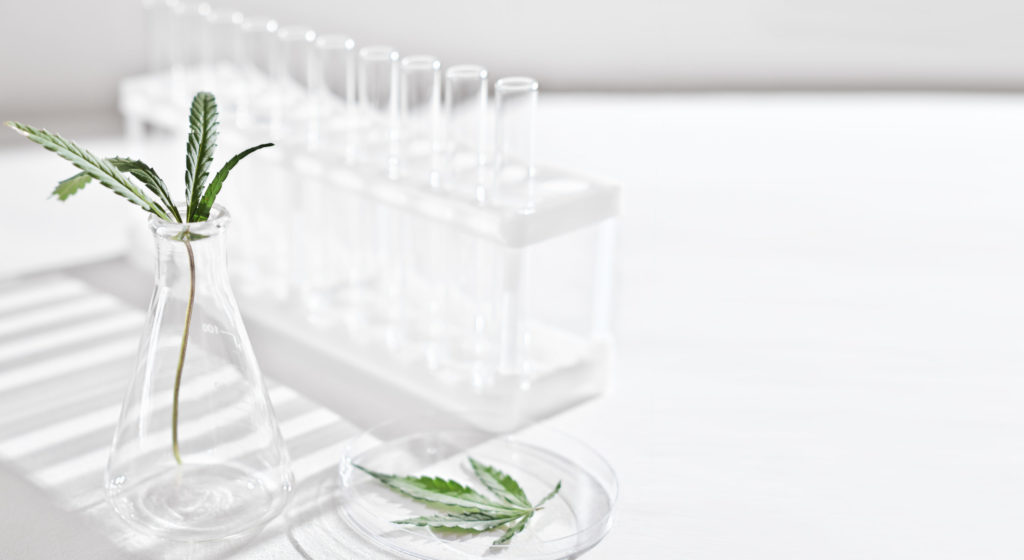Since the legalization of marijuana in numerous states around America, the demand for tetrahydrocannabinol (THC) and other cannabis products has grown exponentially. THC is the primary active ingredient in the marijuana plant, and it’s known for its various potential benefits and recreational uses. However, you may not know there are different kinds of THC.
The THC form that most people are acquainted with is Delta-9 THC. Delta-9 THC produces the psychoactive effects that create the “high” feeling people talk about regarding marijuana, including intensified visual and auditory sensations, elation, and calming feelings. However, another form of THC is taking center stage today called Delta-8 THC. Delta-8 and Delta-9 THC have some considerable differences that many people may be unaware of, especially if they didn’t know there was a difference in the first place. Today, we’ll explore some of the more notable differences between these two cannabinoids to clear up any confusion surrounding the two. This way, if you’re considering which to try, you can make a better decision choosing between those Delta 8 gummies 500mg or the Delta 9 flower from your local cannabis shop.
Psychoactive Effects
First, we’ll focus on one of the main differences between these two types of THC, which is one of the most asked questions regarding Delta-8 THC. Delta-9 is significantly more potent than Delta-8. The overall consensus among consumers is that Delta-9 is roughly twice as strong as Delta-8. As a result, some of the less desirable side effects of marijuana are more noticeable with Delta-9, including possible paranoia, mental fog, reduced reaction times, and potential anxiousness. However, these side effects are also heavily dependent on the marijuana strain. For example, one strain may cause mental fog while another enhances mental clarity. So, do your research on strains before choosing the best one for your needs.
On the other hand, Delta-8 is reported to provide a much more relaxed experience. Most consumers say it produces a calming feeling, regardless of strain. Furthermore, consumers typically report a much clearer “high” that doesn’t affect their cognitive abilities or reaction times as heavily as Delta-9. The time for the effects to kick in is also a considerable difference between the two. Delta-8 works slower than Delta-9 and gradually eases the consumer into a more relaxed state, while Delta-9 is almost instantaneous.
Legality
As most people know, marijuana is illegal on a federal level in the United States. However, it’s been legalized for medicinal and/or recreational purposes in many different states around the country. However, currently, cannabis products with more than 0.3 percent THC are not legal federally, and the state’s legality depends solely on their local cannabis laws. However, not all THC is illegal on the federal level. This is where a second significant difference comes into play. Delta-8 is legal federally because of the 2018 Farm Bill, legalizing hemp farming and production. So, Delta-8 THC sourced from hemp is lawful. Although, due to the psychoactive nature of Delta-8 products, 15 states have restricted its sale and use. Therefore, Delta-8 is legal in far more states than Delta-9. However, that could change in the future.
Sourcing and Extraction
As we’ve mentioned, Delta-9 THC is one of the most abundant cannabinoids in the cannabis plant. Additionally, it’s sourced from primarily marijuana specifically and not hemp. Moreover, extracting Delta-9 is a cheap, simple, and efficient process that takes little time to accomplish. In comparison, Delta-8 is a minor cannabinoid that isn’t as prevalent in either hemp or marijuana. So, extracting Delta-8 costs more and takes a lot of effort. However, manufacturers can use cannabidiol (CBD), another abundant cannabinoid almost as popular as THC, to create Delta-8 THC using solvents. The conversion process is more expensive than extracting Delta-9, but it has made producing Delta-8 products easier. As a result, most Delta-8 THC comes from hemp instead of marijuana. This process also ensures that Delta-8 products contain less than 0.3 percent Delta-9 THC to retain their legal status.
Delta-8 vs. Delta-9
These forms of THC have considerable differences, including effects, legality, and sourcing. However, they both come in many different products. So, keep these differences in mind when shopping for your next cannabis product.

